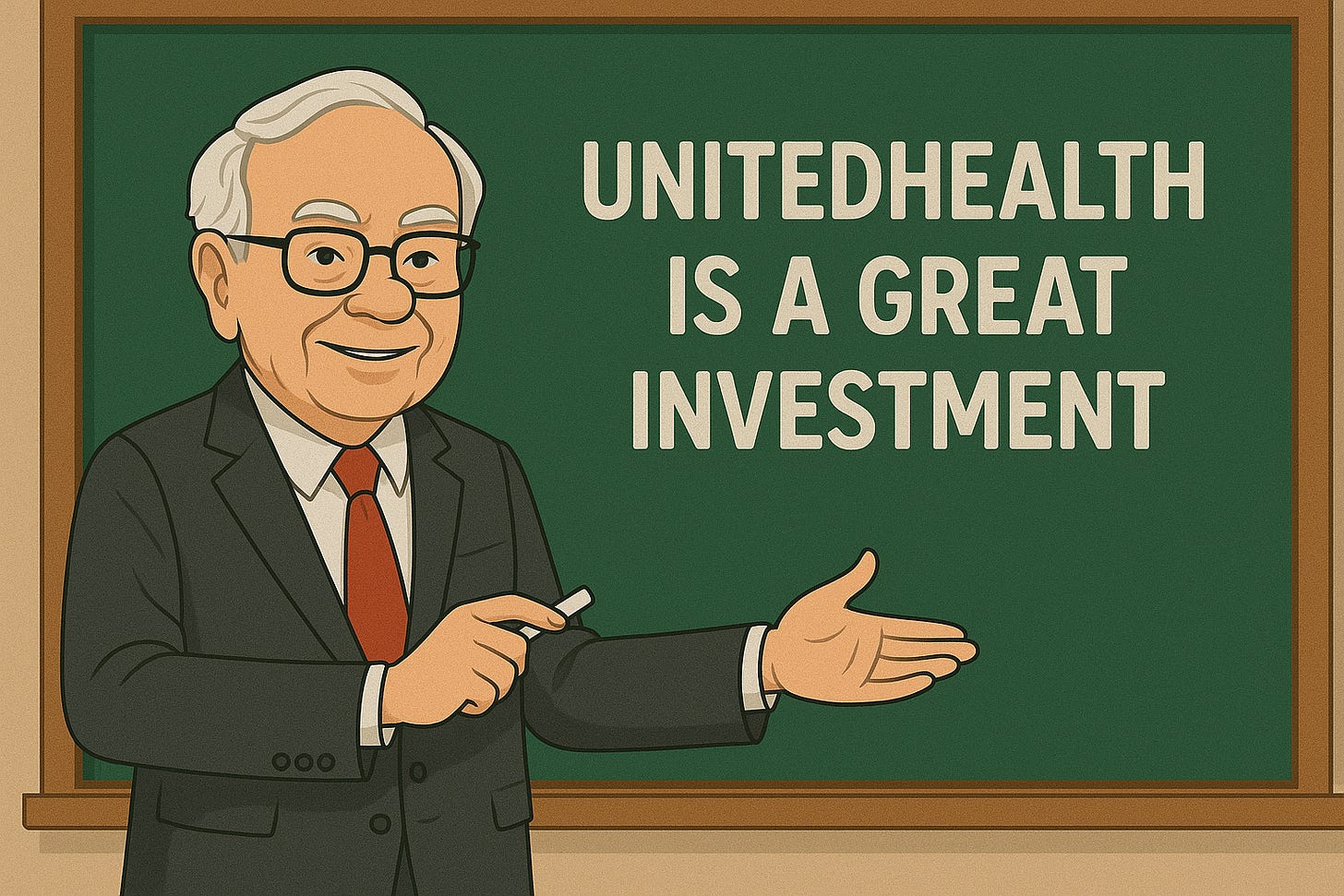Here is why Warren Buffett bought UnitedHealth!
UnitedHealth Group Investment Case!
UnitedHealth Group has experienced an absolutely stratospheric growth in the last 10 years, becoming one of the largest healthcare companies, not only in the US but also in the whole world!
From 2010 to 2023, the company saw its revenues almost 4x, from $92B to $372B!
At the same time, net income grew by 383% to $22.4B and the company returned close to $100B to shareholders in the form of dividends and stock buybacks.
Understandably, such financial performance was rewarded by the stock market, as the stock rose by over 1,600% from 2010 to Q3 2024, reaching a market cap of $565B! However, all that came to an end, as the stock collapsed by over 60% from the all-time high, as issue after issue punished the company.
Then, this week, news broke that the Oracle of Omaha himself, Warren Buffett, acquired a $1.6B stake in UnitedHealth, sending the stock up 12% in a single day!
So, what happened, was the fall deserved? Has the situation changed? What is Mr. Buffett seeing in this company?
In this article, I will answer these questions.
1. The Backstory
2. Here is why Buffett bought it
3. Valuation
4. Conclusion
1. The Backstory
In the last year, the company has seen 4 large, somewhat unconnected setbacks that each punished the stock heavily:
The murder of one of their key executives, Brian Thompson.
The Department of Justice opened a Criminal investigation into the company.
Trump’s One Big Beautiful Bill.
Cost issues caused profits to plummet.
Let’s expand on each of the situations.
The Murder of Brian Thompson
On December 4, 2024, Brian Thompson was murdered when leaving a hotel in Manhattan, New York City. He was the CEO of UNH’s health insurance subsidiary.
This was not one of those crime-related shootings of a random bystander that occur regularly in New York City. Rather, this was a premeditated assassination of a well-known and important executive of a $400B company to make a political statement.
The nature of this killing shocked the business community. But the political message of the killer and the subsequent public reaction is what really hurt the company.
3



